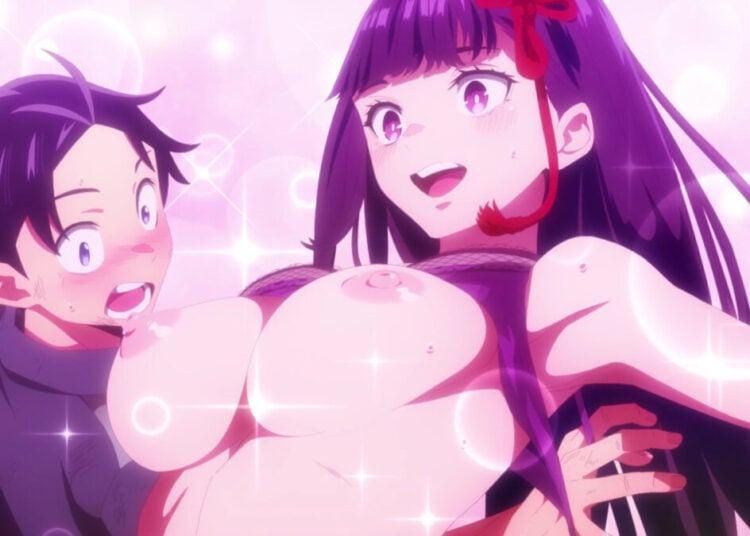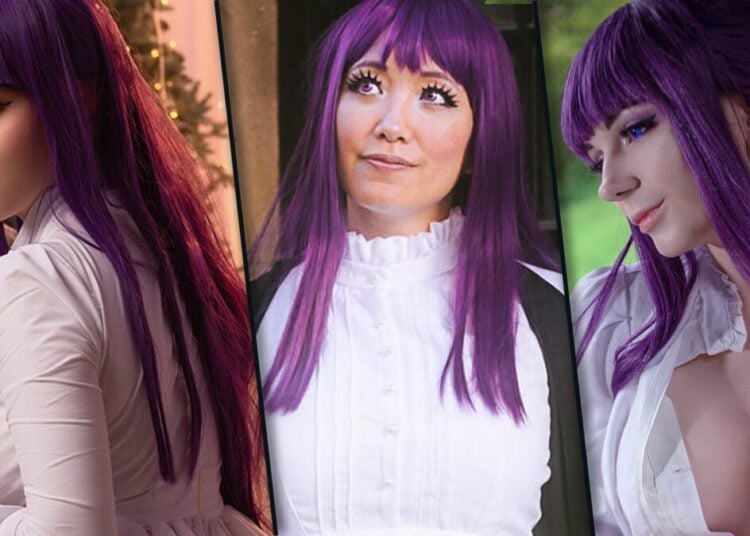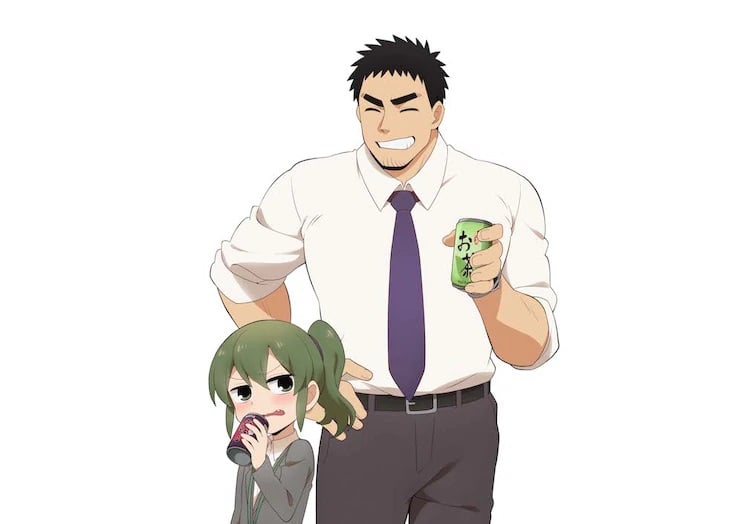The name Neon Genesis Evangelion needs no introduction. Hideaki Anno’s most infamous franchise has as many accolades and controversies as the man himself. After nearly a decade, the latest film in the saga, Rebuild of Evangelion 3.0+1.0: Thrice Upon a Time (2021) was finally released. Intended to be the grand finale of not just the Rebuild saga, but the series as a whole, it more than exceeds expectations. If anything, it’s a powerful sendoff.
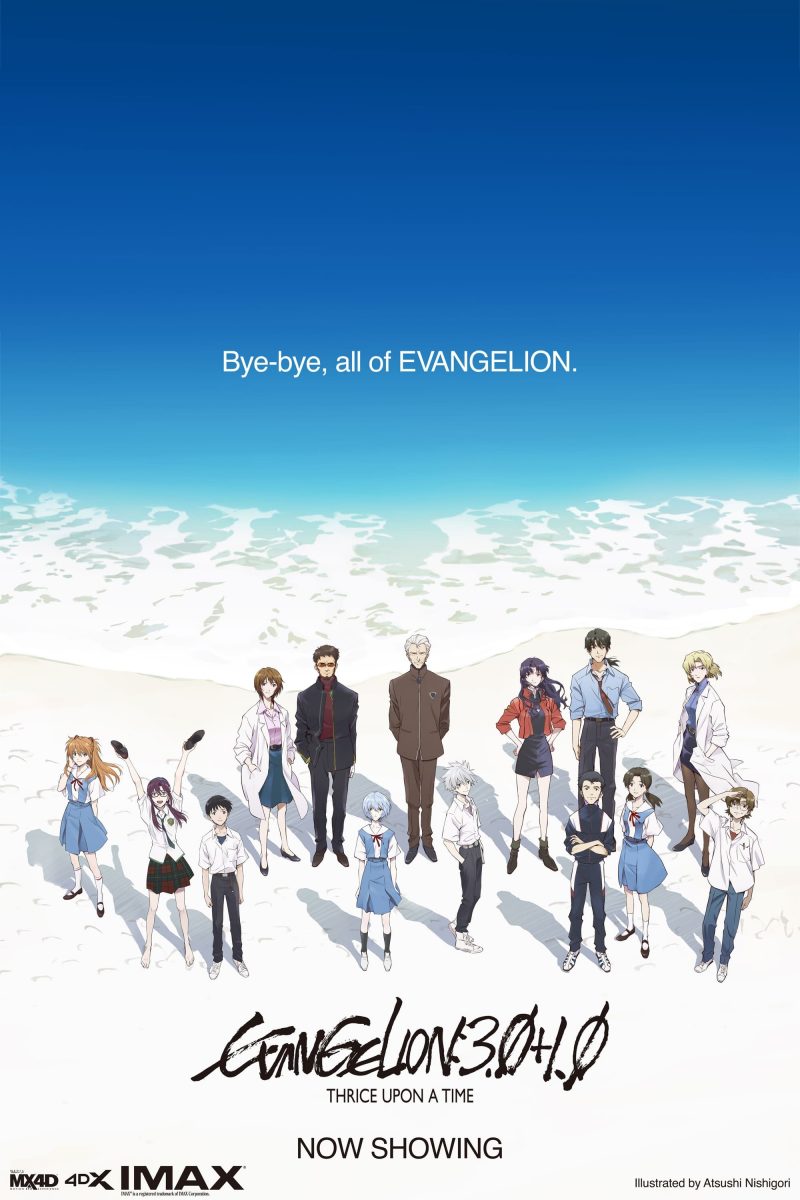
Running at 2 hours and 35 minutes, Studio Khara’s latest entry has had a rough ride. This was thanks in no small part to divisive reactions to the previous movie, financial troubles, and another serious bout of depression on Anno’s part, which he eventually recovered from with much help. It wasn’t until after finishing his stint in directing the award-winning Shin Godzilla (2016), that production began in earnest. With or without the further delays wrought by the COVID-19 pandemic, the anime seemed to have much going against it. Yet within its opening week on March 2021, it grossed ¥3,338,422,400 ($30,596,851) in the box office. By July, it exceeded the ¥10 billion mark, the first Toei-distributed film to ever do so.
The movie’s international trailer features Hikaru Utada’s “One Last Kiss”, which becomes more bittersweet by the ending. (Source: YouTube)
With the film currently streaming internationally through Amazon Prime, which reportedly became the most-watched video on the platform on August 13th, you might be wondering whether the payoff’s really as good as those numbers make it sound. Is it worth it?
If you’re willing to brave some mild spoilers, let’s find out.
The End of an Era
Thrice Upon a Time begins where 3.0: You Can (Not) Redo (2012) left off. In the post-Third Impact ruins of Paris, the forces of WILLE undertake a risky operation to purify the city and retrieve vital supplies for the final confrontation against NERV, with Mari Illustrious Makinami (Maaya Sakamoto, Deneen Melody) doing her best to buy time with a mangled Eva Unit-08. Back in Japan, a bitter Asuka (Yūko Miyamura, Tiffany Grant), rogue clone Rei-Q (Megumi Hayashibara, Amanda Winn-Lee), and a barely functional Shinji Ikari (Megumi Ogata, Spike Spencer) make their way to a sanctuary called Village 3, where they all come to grips with their personal demons. All the while, Gendo Ikari (Fumihiko Tachiki, John Swasey) sets the last steps of his version of Instrumentality into motion. Whatever happens, it’ll be the end of an era.
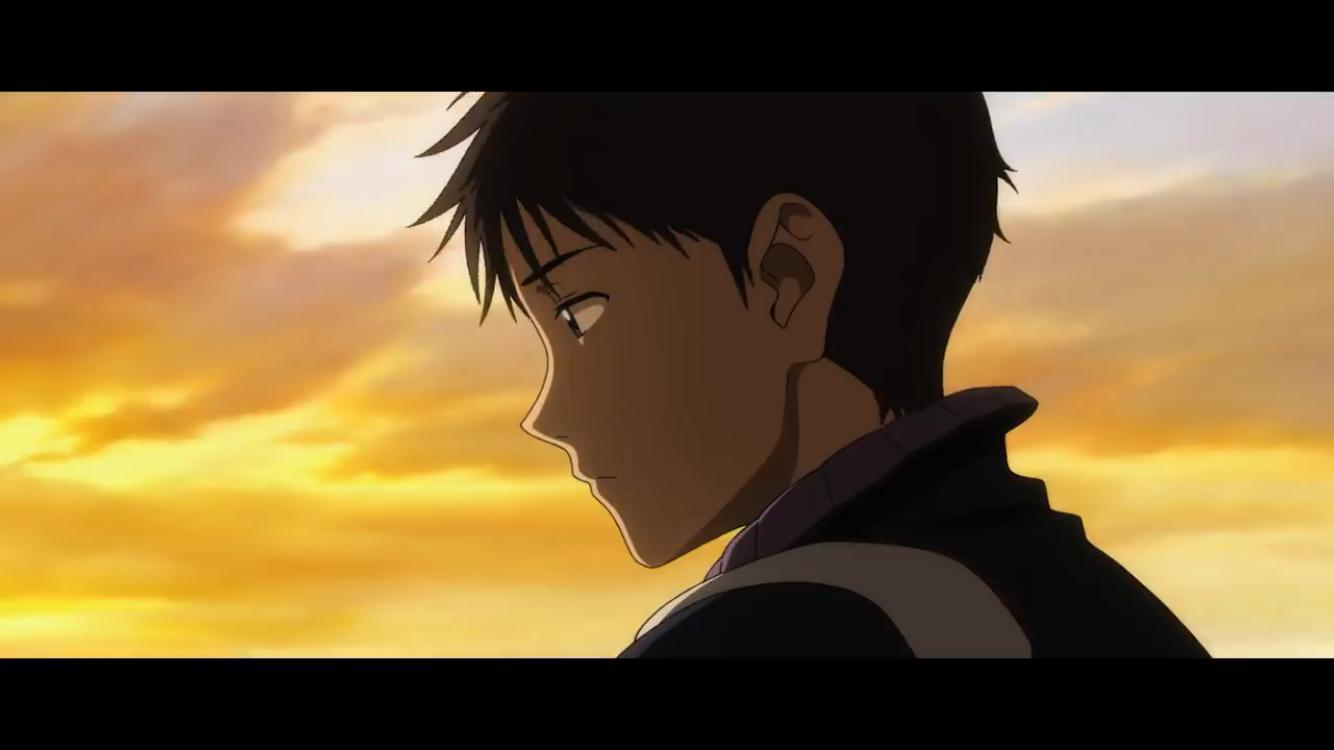
Among the many things that’ll catch your attention is how, though the plot is original, the film takes many cues and elements from End of Evangelion (1997). Whether it’s how Shinji spends the first 40 minutes nigh-catatonic and mentally broken, or the increasingly surreal, apocalyptic imagery by the latter half, the comparisons are inevitable. Yet, it also turns those same points on their heads. In a sharp break, our infamous hero becomes more mature and determined to set things right once and for all. That overbearing sense of nihilism and despair has given way to resolute hope in its motif of facing reality head-on. It’s almost as much a rebuttal as it is a reinterpretation.
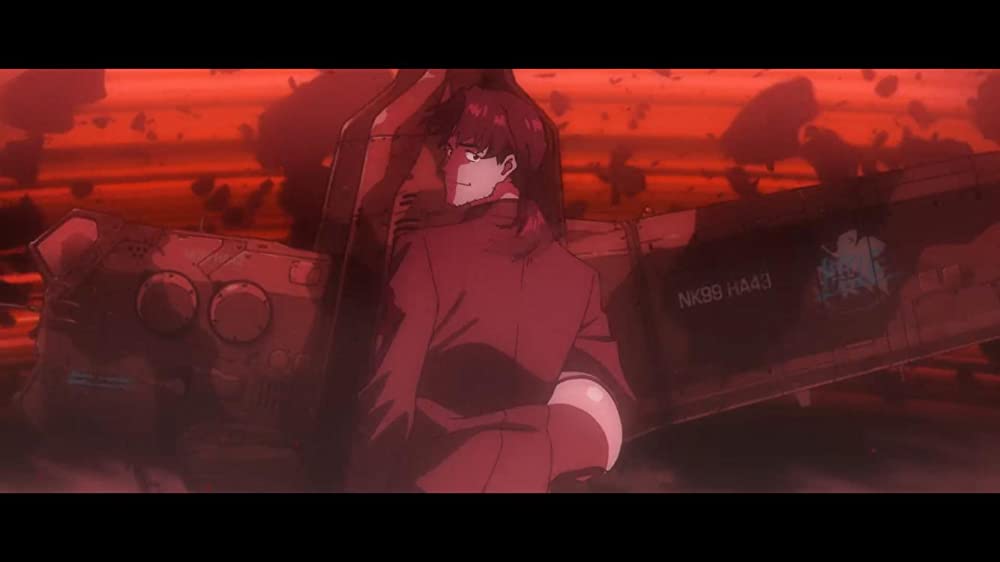
This extends as well to how 3.0+1.0 calls back not just to the earlier Rebuild movies. If anything, it’s a love letter to both the franchise as a whole and Anno’s own otaku passions. Some are subtle, like Rei-Q being given a children’s book about a porcupine, while others are almost shot-for-shot recreations of scenes from the ‘90s anime. The climactic standoff between Shinji and Gendo even goes so far as to reference the creator’s work on Shin Godzilla. Granted, even with the “Previously On…” segment meant to catch viewers up with the storyline, such references and nods may be utterly lost on those who weren’t there practically from the start. While it may take multiple rewatches to grasp every small detail, you could still tell that a lot of care was put into this.
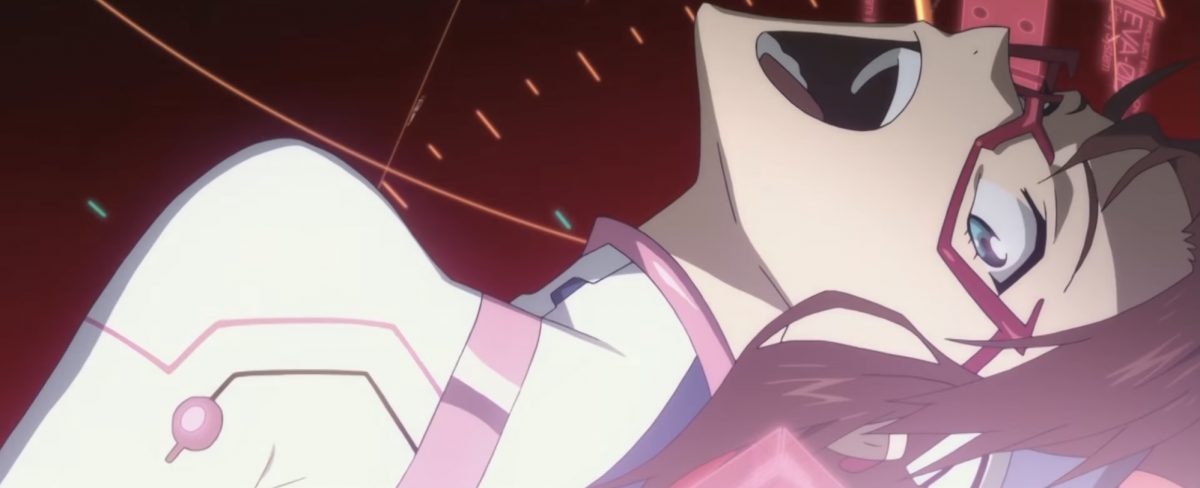
Though there remains much in the way of esoteric symbolism, the film does a good job in giving each character their due. Just about everyone – from the Eva pilots, down to Misato’s WILLE personnel and Shinji’s now-adult classmates – has their ample moment to shine and develop. Not even Gendo is exempt from this, with his arc being among the most surprising, and emotionally charged ones in the entire series. This isn’t to say that aren’t any loose ends and mysteries that are left unresolved, especially surrounding Mari in spite of her much-added screentime. Nonetheless, one can’t shake off the sense of proper closure, that this really is a finale.
Out With a Bang
Despite the tumultuous production, Studio Khara has made a concerted effort to make 3.0+1.0 land on target. The quality of the visuals alone is excellent, at points surpassing the previous film in its sheer detail and variety. This could be attributed to how it combines CGI, conventional art, and even mocap-aided digital animation, resulting in some fluid, if not hyper-realistic sequences. Another reason, though, is due to Anno managing to mesh in disparate styles, including influences from things he’s passionate about (such as Tokusatsu shows) and nods to the shoestring budget Gainax had towards the end of the original series, into a cohesive experience.
https://www.youtube.com/watch?v=veD4TqboMVM
The opening Paris sequence is a tour-de-force that spotlights just how far the animation quality has come. (Source: YouTube)
In the sound department, the movie doesn’t disappoint either. Whether it’s the original Japanese track, or Amazon Prime’s dub – which brings together much of the original English voice cast – the acting starts off strong, and doesn’t let up. While this can be partially due to Anno being more hands-on with direction, you can’t help but notice how natural and at points, raw, the performances can be. Shiro Sagisu’s soundtrack, in classic Evangelion fashion, is an eccentric mix of remixed tunes from the ‘90s anime and ‘80s sci-fi, as well as the stylings of Hikaru Utada, whose “One Last Kiss” is as much a fitting theme song as it is a bittersweet farewell.
The End of the Beginning
Put together, it’s still near-miraculous that Thrice Upon a Time has proven to be such a chart-topping hit. Despite the turbulent path leading up to this point, and how, much like Evangelion as a whole, this will almost certainly have its fair share of detractors, the accolades lavished on this sendoff by critics and fans alike are more than well-earned.
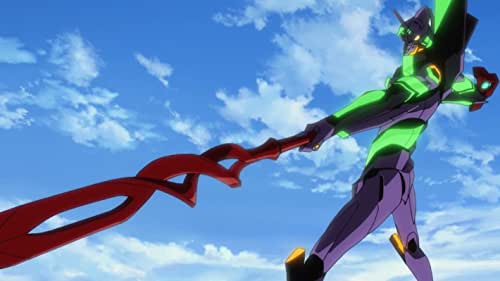
Given Anno’s hopes of his work going down the same path as the Gundam franchise – leaving it to other, younger creators as a “pillar” for the anime industry – and how there might come a time when he meets his characters again, it’s unlikely that this will be the actual end for the franchise. Yet even if nothing major comes down the line from Studio Khara, there’s more than enough in what’s already here to keep fans going for another few decades at least.
Still, for those who’ve been on this wild ride, especially if you’ve been there from the beginning, what better way to say goodbye and move on than this?


